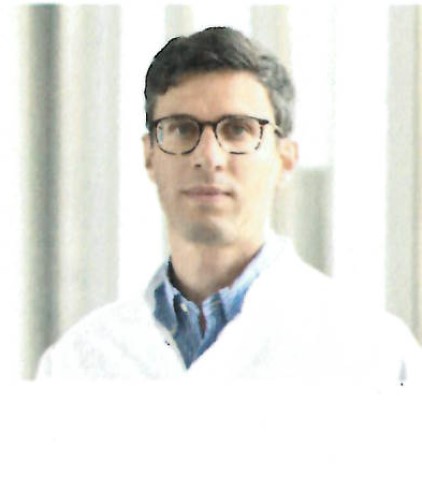
Curriculum Vitae
Seit 01/2019 Ärztlicher Mitarbeiter in der klinische Kooperationseinheit Translationale Immunologie, Medizinische Klinik, Universität Tübingen (Prof. H. Salih)
07/2015-12/2018 Ärztlicher Mitarbeiter in der Abteilung für Hämatologie, Onkologie, Rheumatologie und Pneumologie, Medizinische Klinik, Universität Tübingen (Prof. L. Kanz)
Akademische Ausbildung und Abschlüsse
2020 Promotion
2015 Approbation
08-10/2013 Auslandsaufenthalt La Jolla Institute of Allergy and Immunology (Prof. Anjana Rao), San Diego, CA, U.S.A.
2008-2015 Studium der Humanmedizin, Medizinische Fakultät der Eberhard-Karls Universität Tübingen
2008 Erlangen der Hochschulreife (Abitur)
2005/2006 Auslandsaufenthalt Abingdon School, Oxfordshire, England
2001-2008 Gymnasium Walsrode, Niedersachsen
Phase I trial of the Fc-optimized FLT3 antibody FLYSYN in acute myeloid leukemia (AML) patients with measurable residual disease
FLYSYN: Ergebnisse der Erstanwendungsstudie des Fe-optimierten FLT3 Antikörper FLYSYN zur Behandlung der akuten myeloischen Leukämie mit minimaler Resterkrankung
Jonas S. Heitmann, Daniela Dörfel, Sabine Kayser, Konstanze Döhner, Michael Heuser, Felicitas Thol, Silke Kapp-Schwoerer, Wolfgang Bethge, Ludger Große-Hovest, Martin Steiner, Melanie Märklin, Juliane Walz, Richard Schlenk, Gundram Jung, Helmut Salih
Clinical Collaboration Unit Translational lmmunology, German Cancer Consortium (DKTK), Department of Interna! Medicine, University Hospital Tübingen, Germany; Department of Hematology and Oncology, University Hospital Tübingen, Tübingen, Germany; Department of Hematology, University Hospital of Leipzig, Leipzig, Germany; German Cancer Research Center (DKFZ), Heidelberg, Germany, Department of Interna! Medicine III, University Hospital of Ulm, Ulm, Germany; Department of Hematology, Hemostasis, Oncology, and Stern Cell Transplantation, Hannover Medical School, Hannover, Germany; Synimmune GmbH, Tübingen, Germany; National Center for Tumor Diseases, Heidelberg, Germany; Department of Interna! Medicine V, University Hospital of Heidelberg, Heidelberg, Germany; Department for lmmunology, Eberhard Karls University, Tübingen, Germany
Upon achievement of complete remission (CR), roughly half of AML patients display measurable residual disease (MRD) and eventually relapse. FLT3/CD135 is a highly selective target antigen for immunotherapy expressed on AML cells in almost all patients, whereas expression on healthy tissues is limited to low levels on dendritic cells, monocytes and progenitor cells. Here we report the results of an open-label, single-arm, first in man multicenter trial (recruitment March 2017 to March 2020) evaluating safety/tolerability and efficacy of the Fc-optimized FLT3 antibody FLY5YN in patients with AML (NCT02789254). Morphological CR with stable or increasing MRD in two sequential measurements using central RT-qPCR and/or NGS constituted the main inclusion criterion. FLYSYN was administered i.v. over 3h (cohort 1-5: single application of 0.5 mg/m2, 1.5 mg/m2, 5 mg/m2, 15 mg/m‘, 45 mg/m‘; cohort 6: 15 mg/m2 on day 1, 15 and 29). Three patients were treated per cohort except for cohorts 4 and 6, which were expanded to 9 and 10 patients, respectively. Response was defined as >1 log MRD reduction or negativity in bone marrow (BM). 31 patients (median age 58 years; range, 21-80 years; 20 (65%) females) were enrolled, of which 27, 3 and 1 were MRD positive for mutated NPMl, mutated IDH2 and RUNX1RUNX1T1, respectively. The half-life of FL-YSYN was estimated to be 6.5 days. In 8 patients (26%), a transient de-crease of neutrophil count (2 adverse event (AE) grade 3, others ≤ grade 2) was observed. Of note, in the so far analyzed subset of patients (n=24), no relevant effect on stem cell reserve as assessed by CFU assays was detected. No other AEs ≥ grade 3 or dose-limiting toxicity were observed. The most frequent AEs were unspecific and comprised fatigue and flu like symptoms (12%), musculoskeletal symptoms (8%) and laboratory abnormalities (42%). Overall, molecular response to treatment was achieved in 11/31 patients (35%), with so far two patients achieving MRD negativity documented one year after treatment. Upon application of 45 mg/m‘ FLYSYN (in total, single or repetitive dosing), objective responses were achieved in 46% (6/13) of the patients, whereas 28% (5/18) responded to treatment with lower doses. The results of our phase 1 trial demonstrate that FLYSYN is safe and very well tolerated as monotherapy in AML patients with molecular MRD. Early efficacy data are promising and warrant further evaluation in an upcoming phase II clinical trial.